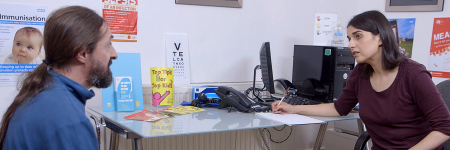
Omics: A cut-out-and-keep guide
You might already know about the genome, but what of the other 'omes’ that affect our health – from the microbiome to the epigenome?

Genomics and PCOS
The discovery of new gene variants associated with polycystic ovary syndrome will lead to better understanding and open up the possibility of targeted treatment

Day in the life: principal clinical scientist
Ronnie Wright of the North West Genomics Laboratory Hub takes us inside the laboratory for an initiation into life as a genomic scientist

Understanding pleiotropy
We explore one of the many phenomena that show genomics to be far more complex than the ‘one gene per characteristic’ rule

Meet the mitochondria
You’ve heard of the genome – our complete set of DNA – but do you know about mitochondrial DNA and its relevance to health?

Pharmacogenomics: mechanisms of action
We know that different people react differently to drugs. But how does this actually happen? And where does genomics come in?

Pharmacogenomics: three challenges to the NHS
Last week we explored the promise of pharmacogenomics in the health service, but there are good reasons why it will take time to implement

Family matters: Top tips for drawing a genetic pedigree
Genetic counsellor Megan Roberts shares her dos, don’ts and top tips for health professionals taking and drawing a patient’s family history

Pharmacogenomics: a new normal for the NHS?
The analysis of the genomic determinants of drug response is a hot topic in healthcare and was the focus for a workshop last month

Four types of genomic testing explained
In the age of genomics, it can be difficult to understand the ins and outs of different types of testing; here we break down four of the most common

Building your profile as a genomics champion
Are you looking to amplify your voice online? Following a special event for Faculty members, we've compiled all the key points and top tips

Pancreatic cancer and genomics
Pancreatic cancer is one of the most aggressive kinds, but new genomics research offers hope for more effective, targeted treatment for patients


